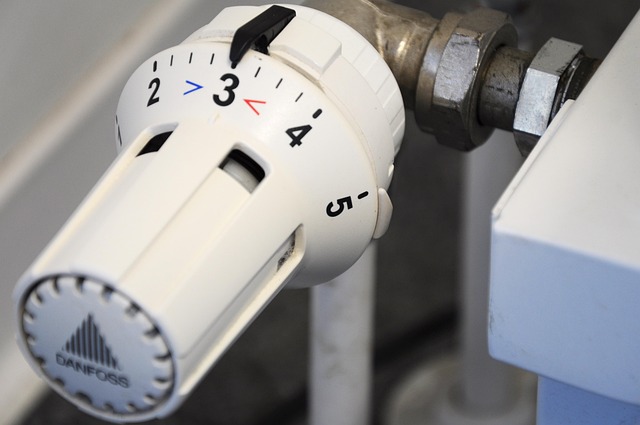Understanding Electricity and Gas: Key Factors Affecting Your Energy Bills
Electricity and gas are essential utilities that power our homes and businesses. However, many consumers struggle to understand the complexities of their energy bills and how to manage their consumption effectively. This article will explore the key factors that influence electricity and gas usage, providing insights into how you can reduce your energy costs and improve efficiency.

Some of the most energy-intensive appliances in a typical household include:
-
Refrigerators and freezers
-
Air conditioners and heating systems
-
Water heaters
-
Washing machines and dryers
-
Dishwashers
By upgrading to more efficient models and using these appliances wisely, you can significantly reduce your electricity consumption and save money on your energy bills.
What role does your thermostat play in energy efficiency?
Your thermostat is a crucial component in managing your home’s energy usage, particularly when it comes to heating and cooling. A programmable or smart thermostat can help you optimize your energy consumption by automatically adjusting the temperature based on your schedule and preferences.
Here are some tips for using your thermostat effectively:
-
Set your thermostat to a higher temperature in summer and a lower temperature in winter when you’re away or sleeping.
-
Use the programmable features to create a schedule that aligns with your daily routine.
-
Avoid drastic temperature changes, as this can cause your HVAC system to work harder and consume more energy.
-
Consider investing in a smart thermostat that can learn your habits and adjust accordingly, potentially leading to even greater energy savings.
By making small adjustments to your thermostat settings, you can significantly reduce your energy consumption and lower your bills without sacrificing comfort.
How can you reduce your gas consumption at home?
While electricity often gets more attention, gas consumption also contributes significantly to your overall energy bills. Here are some strategies to help reduce your gas usage:
-
Improve insulation: Proper insulation in your walls, attic, and floors can help retain heat and reduce the workload on your gas-powered heating system.
-
Maintain your gas appliances: Regular maintenance of gas-powered appliances, such as furnaces and water heaters, can improve their efficiency and reduce gas consumption.
-
Use energy-efficient cooking methods: When cooking with gas, use lids on pots and pans to retain heat and cook food faster, reducing gas usage.
-
Consider upgrading to high-efficiency gas appliances: Modern gas furnaces and water heaters are designed to use less gas while providing the same level of performance.
-
Seal air leaks: Check for and seal any air leaks around windows, doors, and other openings to prevent heat loss and reduce the demand on your gas heating system.
By implementing these strategies, you can effectively reduce your gas consumption and lower your overall energy bills.
What are some effective ways to monitor and manage your energy usage?
Monitoring and managing your energy usage is crucial for keeping your bills under control. Here are some effective methods to help you stay on top of your electricity and gas consumption:
-
Smart meters: Many utility companies now offer smart meters that provide real-time data on your energy usage. This information can help you identify peak consumption periods and adjust your habits accordingly.
-
Energy monitoring apps: Several smartphone apps can help you track your energy usage and provide insights into your consumption patterns.
-
Regular meter readings: If you don’t have a smart meter, take regular meter readings to keep track of your usage and spot any unusual spikes in consumption.
-
Energy audits: Consider having a professional energy audit conducted on your home to identify areas where you can improve efficiency and reduce consumption.
-
Set energy-saving goals: Establish specific targets for reducing your energy usage and track your progress over time.
By actively monitoring and managing your energy consumption, you can make informed decisions about your usage habits and identify opportunities for savings.
How do seasonal changes affect your energy bills?
Seasonal changes can have a significant impact on your energy bills, primarily due to fluctuations in heating and cooling demands. Understanding these seasonal patterns can help you better prepare for and manage your energy costs throughout the year.
Summer:
-
Higher electricity usage due to increased air conditioning demand
-
Longer daylight hours may reduce lighting costs
-
Potential for higher energy bills overall
Winter:
-
Increased gas usage for heating in homes with gas furnaces
-
Higher electricity usage in homes with electric heating systems
-
Shorter daylight hours may increase lighting costs
Spring and Fall:
-
Generally lower energy bills due to milder temperatures
-
Less demand for heating and cooling
-
Opportunity to open windows for natural ventilation, reducing reliance on HVAC systems
To manage seasonal fluctuations in your energy bills:
-
Adjust your thermostat settings according to the season
-
Use natural heating and cooling methods when possible (e.g., opening windows in mild weather)
-
Prepare your home for each season by checking insulation and sealing air leaks
-
Consider budget billing options offered by some utility companies to spread costs evenly throughout the year
By understanding and preparing for seasonal changes, you can better manage your energy consumption and avoid unexpected spikes in your bills.
In conclusion, managing your electricity and gas consumption requires a comprehensive approach that considers various factors, including appliance efficiency, thermostat settings, and seasonal changes. By implementing the strategies outlined in this article and staying informed about your energy usage, you can effectively reduce your bills and improve your home’s overall energy efficiency. Remember that small changes in your daily habits can lead to significant savings over time, benefiting both your wallet and the environment.






